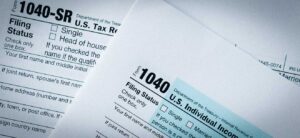 Working together, the Internal Revenue Service, state tax agencies and the national tax industry are alerting taxpayers about the Identity Protection PIN Opt-In Program. Taxpayers can now obtain a six-digit Personal Identification Number (PIN) designed to prevent identity thieves from filing future fraudulent tax returns in their name.
Working together, the Internal Revenue Service, state tax agencies and the national tax industry are alerting taxpayers about the Identity Protection PIN Opt-In Program. Taxpayers can now obtain a six-digit Personal Identification Number (PIN) designed to prevent identity thieves from filing future fraudulent tax returns in their name.
Previously, the IRS only issued an IP PIN to confirmed identity theft victims once their cases were resolved. The IP PIN process for confirmed tax victims of identity theft remains unchanged. These victims will automatically receive an IP PIN each year.
Taxpayers who have not experienced tax identity theft must opt-in for an IP PIN by participating in a rigorous identity verification process. The IP PIN is only valid for one calendar year; the IRS requires a new IP PIN for each filing season. The IP PIN must be entered on electronic or paper tax returns to avoid delays and rejections. Your CPA or tax preparer can’t obtain the IP PIN for you.
To begin the opt-in process, taxpayers can go to IRS.gov/IPPIN and select the “Get an IP PIN” online tool. If taxpayers and/or their dependents can’t pass the online identity proofing process, they can contact the IRS to set an appointment for a Taxpayer Assistance Center near them to verify their identities and issue the IP PIN. For identity verification, each taxpayer will need to bring one picture identification document and another identification document to the Center. Once verified, the taxpayer will receive an IP PIN via the U.S. Postal Service within three weeks, according to the IRS.
If taxpayers have an adjusted gross income of $72,000 or less and have a valid Social Security number (or ITIN) and access to a telephone, they may be able to file Form 15227 to request their IP PIN. The IRS will contact them via the telephone number given to verify their identity and issue the IP PIN.
Once you receive your IP PIN, do not share it with anyone except the IRS and your trusted CPA or tax advisor. Keep in mind that the IRS will never email, text or call you to request your IP PIN. Check with your CPA or tax advisor regarding any correspondence claiming to be from the IRS.
According to the IRS, common warning signs of possible identity theft include:
- IRS Authentication letters (5071C, 4883C, 5747C) even though the tax preparer or taxpayer hasn’t filed a return
- A refund even though they haven’t filed a return
- A tax transcript they didn’t request
- Emails or calls from a “tax professional” that the actual tax professional didn’t initiate
- A notice that someone created an IRS online account for the taxpayer without their consent
- A notice the taxpayer wasn’t expecting that:
- Someone accessed their IRS online account
- The IRS disabled their online account
If you have any questions about the IP PIN Opt-In Program or ways to protect your identity for the upcoming tax season, contact us at WhippleWood CPAs. We take the security of our clients’ data very seriously.

